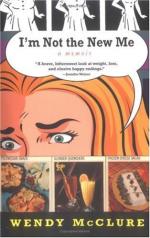“That we highly disapprove
of the formation of Abolition
societies, and of the doctrines
promulgated by them.
“That the right of property
in slaves is sacred to the
slave-holding States by the
Federal Constitution, and that
they cannot be deprived of
that right without their consent.
“That the General Government
cannot abolish slavery in the
District of Columbia against
the consent of the citizens of
said District, without a manifest
breach of good faith.
“That the Governor be
requested to transmit to the States of
Virginia, Alabama, Mississippi,
New York, and Connecticut a
copy of the foregoing report
and resolutions.”
Lincoln refused to vote for these resolutions. In his judgment no expression on the slavery question should go unaccompanied by the statement that it was an evil, and he had the boldness to protest immediately against the action of the House. He found only one man in the Assembly willing to join him in his action. These two names are joined to the document they presented:
“Resolutions upon the subject of domestic slavery having passed both branches of the General Assembly at its present session, the undersigned hereby protest against the passage of the same.
“They believe that the institution of slavery is founded on both injustice and bad policy, but that the promulgation of abolition doctrines tends rather to increase than abate its evils.
“They believe that the
Congress of the United States has no
power under the Constitution
to interfere with the institution
of slavery in the different
States.
“They believe that the Congress of the United States has power under the Constitution to abolish slavery in the District of Columbia, but that the power ought not to be exercised unless at the request of the people of the District.
“The difference between
these opinions and those contained
in the above resolutions,
is their reason for entering this
protest.
“DAN STONE,
“A. LINCOLN,
“Representatives from the County of Sangamon.”
[Illustration: WILLIAM BUTLER.
From a photograph owned by his grandson, Hon. William J. Butler, Springfield, Illinois. William Butler was a native of Kentucky, being born in Adair County, that State, December 15, 1797. In the war of 1812, he carried important despatches from the Governor of Kentucky to General Harrison in the field, travelling on horseback. He went to Sangamon County, Illinois, in 1828. In 1836 he was appointed clerk of the Circuit Court by Judge Logan, whom he had known in Kentucky. In 1859 he was appointed by Governor Bissell State treasurer of Illinois, to fill a vacancy, and in 1860 was elected to that office. He was married to Elizabeth Rickard, December 18, 1863. He died in Springfield, January 11, 1876. Soon after becoming a resident of Springfield, Lincoln went to William Butler’s house to board. There he was like a member of the family. He lived with Mr. Butler until his marriage in 1842. The two men were ever the warmest personal and political friends.]




